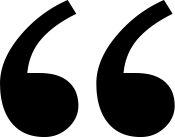
Elkin Cordoba was looking for a job where he can be creative. Since he has always found computer automation fascinating, a career in the software industry made perfect sense.
His journey with Salesforce began when a cloud computing company hired him and now he has evolved from writing code to becoming a Salesforce Consultant handling complex technical and business issues.
My name is Elkin Cordoba, and I’m a consultant, specifically giving support to customers. Everyday I talk with our clients and solve the problems they have using Salesforce. We also improve their experience by creating new things and features in the Salesforce ecosystem.
How and why did you get started with Salesforce?
I like automation through computers, through robots. I was looking for a job where I can be creative, where my ideas could become real, and I found that in the software industry. I was looking for a job connected with Java and C# and found a company that works with cloud computing. They were looking for someone who knows Java, so they gave me the opportunity to start learning Salesforce.
What was the most challenging part of learning Salesforce?
I liked to write code, but I didn’t have any experience before for Salesforce. So, I studied a lot, but I didn’t have experience with writing a code for a company. It was challenging to make code that works for people that needed it, while trying to understand code written by other people. It was very challenging to try to solve a code that was written by anyone else.
What certifications have you achieved so far?
I’m a technical consultant so I was looking for developer certifications. But with Salesforce, it’s not enough that you know how to write code—you should also know how to solve non-technical concerns. So, I took both career paths: a developer and a consultant.
I obtained Developer One and Developer Two certifications, also Service Cloud and Sales Cloud certification, an Admin and Advanced Admin certification. Now, I’m studying for other ones, for technical and business [To date, Elkin has 17 certifications].
With Salesforce, it’s not enough that you know how to write code—you should also know how to solve non-technical concerns.

Which certification was the most difficult one for you and why? How did you prepare yourself for that specific Salesforce certification?
I was studying for Identity Management certification which is for technical architects for Salesforce. I think this is the most challenging certification, because it is managing identity analysis in Salesforce. It is crucial, because if you give access to a person that shouldn’t have access, everything gets compromised.
What tips and advice do you have for others who are in a process of learning and preparing for Salesforce certification?
You have to read a lot! There are people that are showing the content or the solution of a problem in forums or in a video, so with this I think we have a great opportunity to learn a lot and improve our knowledge about Salesforce.
You should read books and the content on different blogs connected with Salesforce topics. I suggest for people to look for books about Salesforce written by experts. Also, read blogs about Salesforce because they constantly are updating the content and obviously to use Trailhead. It is managed by Salesforce itself, so it is the first resource to look into.
You should read books and the content on different blogs connected with Salesforce topics. I suggest for people to look for books about Salesforce written by experts.

How did Focus on Force study guides and practice exams help with your preparation?
Focus on Force has been a great help for studying. You can find some aspects of the material spread on the Internet, but on Focus on Force you can get everything in one place.
It is organized—it takes every aspect of the platform and explains it in a guideline. Also, they don’t just show copied content. They explain the material and all information, connected with the Salesforce platform, in their own way. The screenshots are making the material much clearer too. So, Focus on Force is a great source to study, and I would not pass my exams without it, even if I read a lot of books or other blogs.
What advice do you have for someone that wants to start a Salesforce career?
Salesforce has something to offer everyone. If you are looking for a technical career, a marketing career, or a management career, Salesforce has everything and much more. It has everything you need to become a professional in each area. Even if you are working in other industries, you can get Salesforce and improve your career. So, my advice is to look for Salesforce and when you understand everything that Salesforce has to offer you will not imagine your life without Salesforce!
Salesforce has something for everyone. If you're looking for a technical career or marketing career, or if you want to be a manager, Salesforce has something for you to be a professional in that area.

What Certification are you studying for now?
Focus on Force currently provides practice exams and study guides for sixteen certifications














